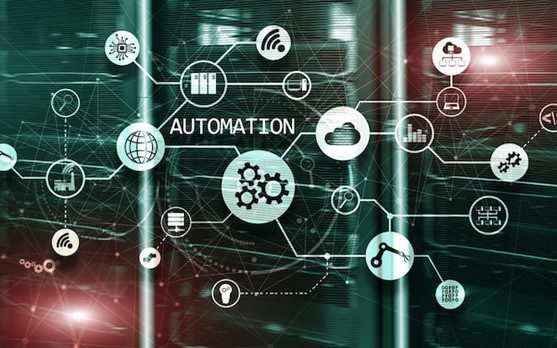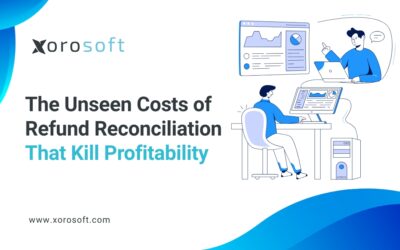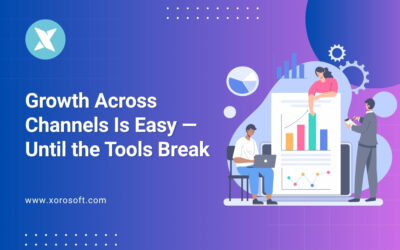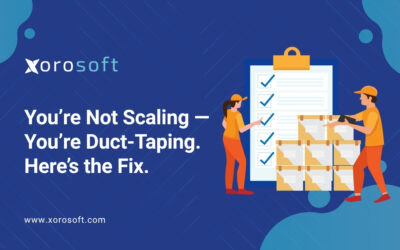
Introduction to ERP Systems
ERP systems are comprehensive software solutions that integrate and automate a wide range of business processes, from accounting and inventory management to manufacturing and customer relationship management. By centralizing data and streamlining workflows, ERP systems provide organizations with a unified view of their operations, enabling data-driven decision-making and improved overall performance.
At the heart of an ERP system lies a powerful database that serves as the single source of truth for an organization. This centralized repository of information allows for seamless information sharing and real-time visibility across departments, breaking down silos and fostering cross-functional collaboration.
Benefits of Implementing an ERP System
The benefits of implementing an ERP system are numerous and far-reaching. Let’s explore some of the key advantages:
- Improved Operational Efficiency: ERP systems automate and standardize business processes, reducing manual tasks and eliminating redundancies. This leads to increased productivity, reduced errors, and faster turnaround times.
- Enhanced Decision-Making: ERP systems provide real-time data and analytics, empowering organizations to make informed, data-driven decisions that drive business growth.
- Streamlined Supply Chain Management: ERP systems offer robust supply chain management capabilities, including inventory tracking, procurement, and logistics optimization, ensuring a more efficient and responsive supply chain.
- Increased Visibility and Transparency: ERP systems provide a centralized platform for accessing and analyzing data across the organization, promoting transparency and enabling better collaboration among departments.
- Improved Financial Management: ERP systems integrate financial processes, such as accounting, invoicing, and reporting, leading to more accurate financial records and improved cash flow management.
- Scalability and Adaptability: ERP systems are designed to grow and evolve with an organization, allowing businesses to adapt to changing market conditions and expand their operations seamlessly.
Key Features of Xorosoft ERP Solution
At Xorosoft, we have developed a comprehensive ERP solution that addresses the unique needs of modern businesses. Our ERP system boasts a range of powerful features that can help organizations streamline their supply chain operations:
- Supply Chain Management: Our ERP solution offers advanced supply chain management capabilities, including inventory tracking, procurement, and logistics optimization. This ensures that your organization can maintain optimal inventory levels, reduce stockouts, and improve delivery times.
- Inventory Management: With our ERP system, you can effectively manage your inventory, monitor stock levels, and automate replenishment processes. This helps to minimize waste, reduce carrying costs, and improve overall inventory efficiency.
- Accounting and Financial Management: Our ERP solution integrates seamlessly with your financial processes, providing accurate and real-time financial reporting, invoicing, and cash flow management.
- Manufacturing and Production Planning: Our ERP system offers robust manufacturing and production planning capabilities, enabling you to optimize your production processes, reduce lead times, and improve overall operational efficiency.
- Customer Relationship Management (CRM): Our ERP solution includes a comprehensive CRM module, allowing you to manage customer information, track sales opportunities, and improve customer service and satisfaction.
- Business Intelligence and Analytics: Our ERP system provides advanced business intelligence and analytics tools, empowering you to make data-driven decisions, identify trends, and uncover new opportunities for growth.
Streamlining Supply Chain Management with ERP
One of the primary benefits of implementing an ERP system is its ability to streamline supply chain management. By integrating all the moving parts of your supply chain – from procurement and inventory to logistics and distribution – an ERP system can help you achieve greater visibility, control, and optimization.
With our Xorosoft ERP solution, you can gain real-time insights into your supply chain, enabling you to make more informed decisions. Our system’s advanced forecasting and demand planning capabilities can help you anticipate and respond to changes in customer demand, ensuring that you have the right products in the right place at the right time.
Moreover, our ERP system’s integrated procurement and inventory management modules can help you optimize your purchasing processes, reduce stockouts, and minimize excess inventory. By automating replenishment, you can maintain optimal inventory levels, freeing up valuable capital and warehouse space.
Enhancing Inventory Management with ERP
Effective inventory management is a crucial component of a well-functioning supply chain. An ERP system like ours can revolutionize the way you manage your inventory, providing you with the tools and insights needed to optimize stock levels, reduce waste, and improve overall efficiency.
Our ERP solution offers advanced inventory tracking and monitoring capabilities, allowing you to monitor stock levels, track stock movements, and receive real-time alerts on potential stockouts or overstocks. This visibility enables you to make more informed decisions, adjust your purchasing and production plans accordingly, and ensure that your customers receive their orders in a timely manner.
Additionally, our ERP system’s automated replenishment features can help you maintain optimal inventory levels, minimizing the risk of stockouts and reducing the carrying costs associated with excess inventory. By integrating your inventory data with other business processes, such as sales and procurement, our ERP solution can provide you with valuable insights to help you make more strategic inventory management decisions.
Improving Accounting Processes with ERP
Efficient financial management is the backbone of any successful business, and an ERP system can play a crucial role in streamlining your accounting processes. Our Xorosoft ERP solution seamlessly integrates with your financial systems, providing a centralized platform for managing your accounting, invoicing, and reporting functions.
With our ERP system, you can automate a wide range of accounting tasks, such as accounts payable and receivable, general ledger, and financial reporting. This not only reduces the risk of human error but also frees up your finance team to focus on more strategic initiatives.
Moreover, our ERP solution’s real-time financial data and analytics capabilities can provide you with valuable insights into your organization’s financial health. You can generate accurate, up-to-date financial reports, track cash flow, and monitor key performance indicators (KPIs) to make more informed, data-driven decisions.
Choosing the Right ERP System for Your Business
Selecting the right ERP system for your business is a critical decision that can have far-reaching implications for your supply chain and overall operations. When evaluating ERP solutions, it’s essential to consider the unique needs and requirements of your organization, as well as the system’s features, scalability, and ease of implementation.
At Xorosoft, we understand that every business is different, which is why we offer a customizable ERP solution that can be tailored to meet your specific needs. Our team of experts will work closely with you to understand your pain points, identify your goals, and design an ERP system that aligns with your business strategy.
Whether you’re a small-to-medium-sized enterprise or a large multinational corporation, our Xorosoft ERP solution can provide the flexibility, scalability, and functionality you need to streamline your supply chain and drive sustainable growth.
Implementing an ERP System: Best Practices and Challenges
Implementing an ERP system can be a complex and challenging process, but with the right approach and mindset, it can be a transformative experience for your organization. Here are some best practices and common challenges to consider:
Best Practices:
- Establish a clear vision and objectives for your ERP implementation.
- Assemble a cross-functional project team with representatives from key departments.
- Conduct a thorough assessment of your current business processes and data requirements.
- Carefully select an ERP solution that aligns with your business needs and goals.
- Develop a comprehensive change management plan to ensure user adoption and minimize disruption.
- Provide extensive training and support to your employees to help them navigate the new system.
- Continuously monitor and optimize your ERP system to ensure ongoing efficiency and effectiveness.
Challenges:
- Resistance to change from employees who are comfortable with existing processes.
- Integrating the ERP system with legacy systems and data sources.
- Ensuring data accuracy and integrity during the migration process.
- Securing buy-in and support from key stakeholders throughout the organization.
- Maintaining a clear project scope and timeline to avoid cost overruns and delays.
- Addressing the unique needs and requirements of different departments and business units.
- Providing ongoing support and maintenance for the ERP system.
By addressing these best practices and challenges proactively, you can ensure a successful ERP implementation that delivers tangible benefits to your supply chain and overall business operations.
Conclusion: Unlocking Supply Chain Efficiency with ERP Systems
In today’s fast-paced, data-driven business landscape, the ability to optimize your supply chain operations has become a critical competitive advantage. As an experienced writer, I firmly believe that implementing an ERP system, such as Xorosoft’s comprehensive solution, can be the key to unlocking new levels of efficiency, agility, and profitability within your organization.
By centralizing your data, streamlining your business processes, and providing real-time visibility across your supply chain, an ERP system can help you make more informed, data-driven decisions, reduce costs, and improve customer satisfaction. From enhancing inventory management and streamlining accounting processes to optimizing logistics and fostering cross-functional collaboration, the benefits of an ERP system are far-reaching and transformative.
If you’re ready to take your supply chain to the next level, I encourage you to explore the powerful capabilities of Xorosoft’s ERP solution. Book a demo with our team today and discover how we can help you unleash the full potential of your supply chain.









